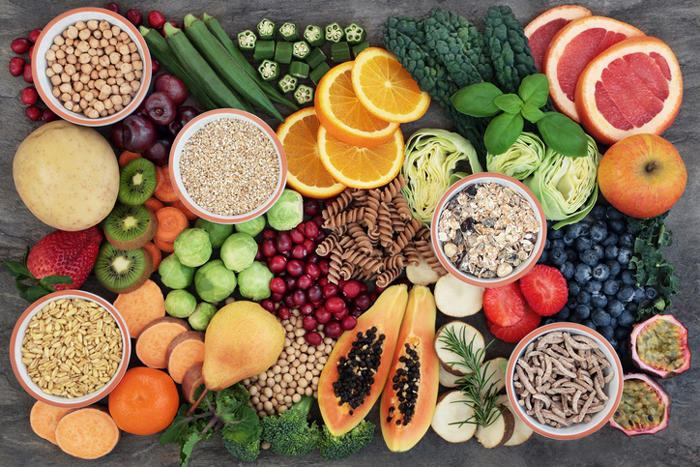This is a well-known fact the eating vegetables and fruits improve the overall health of people. However, a new study has now found that how much fruits and vegetables might help people live a few extra years. The findings of the study have been released in the journal called Circulation. Health experts have looked at data of 66719 women who have been observed in the Nurses’ Health Study. The new study has analyzed the data of 42016 men as well from the Health Professionals Follow-Up Study. The data of these people have been compared with data of vegetable and fruit intake and rate of death from 26 other studies. After observing the data thoroughly, experts have come up with a finding, which says that eating five servings of fruits and vegetables in a day is linked to a longer life span. The study has revealed that people who have been eating five servings of fruits and vegetables are at a 13 percent lower risk of death due to any cause as compared to people who eat only two servings of fruits and vegetables in a day. People who eat five servings of fruits and vegetables are at a 12 percent lower risk of dying due to heart disease. These people are a 10 percent reduced risk of death due to cancer and a 35 percent reduced risk of death due to respiratory disease.
Health experts who have been involved in the study have made some more specific recommendations as well. They have said that eating three servings of fruits and vegetables in a day is ideal. The findings of their study have shown that eating more than five servings of fruits and vegetables will not make any beneficial effect on the life span. They have said that not all types of fruits are beneficial in increasing the life span. Experts have found that potatoes, corn, and starchy vegetables like peas are not linked to increased life span. Even fruit juice does not make any difference in the life span of people, said the experts. The study has noted that lettuce, spinach, carrots, and kale are some vegetables, which are considered beneficial. In the fruit department, berries and citrus fruits are highly beneficial. Health experts who have done the study have specifically said that people should increase the intake of fruits and vegetables except for fruit juice and potatoes. Potatoes and fruit juice have not been included in the dietary recommendations. The American Heart Association (AHA) as well has advised that people should have four servings of fruits and five servings of vegetables in a day. Experts from the AHA have said that a serving can consist of a medium piece of fruit and a half-cup of fresh or frozen fruits or vegetables and a cup of raw leafy vegetables.
A registered dietician, Scott Keatley has said that he is not surprised by the outcomes of the study. He has said that though the findings largely support existing recommendations, it has been based on people’s self-reported data on their lifestyle and diet, which can be wrong at times. He has noted that people who eat more vegetables and fruits tend to workout more, drink less alcohol, and avoid smoking, which are huge factors in increasing the life span. Rena Zelig, who is a certified nutritionist and director of the Masters of Science in Clinical Nutrition program, has said that the findings of the study are quite reliable. In the new study, experts have relied more on vegetables than fruits due to calorie intake. Experts have said that most people develop fatal diseases due to excess visceral fat. Generally, fruits contain more calories than vegetables. Vegetables help people to get full with fewer calories. Vegetables are more nutritious than fruits. They have certain compounds, which help in improving overall health, said the experts. The fiber found in vegetables feeds gut bacteria, which creates more compounds that help in promoting good health and reduce the risk of many diseases. Potatoes, corn, and peas are known to be starchy vegetables, which have more calories than other vegetables. They can be included in the diet but they have more calories as compared to vegetables such as spinach. Spinach contains seven calories per cup, while peas have 118 calories per cup, said the experts.
